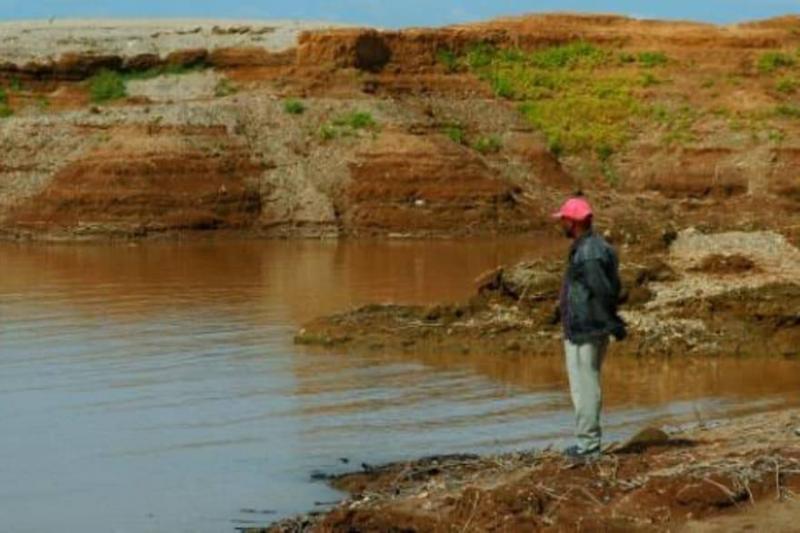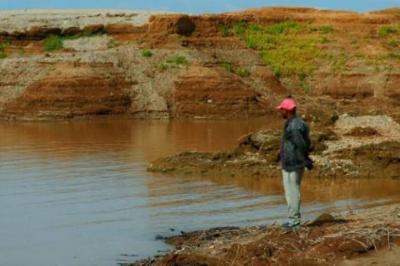When the mobile phone of Ethiopian Gebratnsaai Gebrahristos, who lives in the village of Wad al-Halyo in eastern Sudan, rings, he is filled with panic, fearing he will hear news of more bodies of his fellow Tigrayans found in a river near the border with his homeland. Gebrahristos, a forty-something farmer who has been residing in the Sudanese state of Kassala for a decade, states that he has been receiving such calls since late last month when Sudanese villagers discovered the first body floating on the surface of the State River, with its hands bound and signs of gunshot wounds. He said to AFP, "For weeks, calls keep coming either to me or to other Tigrayans living here whenever a body is found." He added, "We may not know them personally, but these are the bodies of our people."
Gebrahristos was accustomed to visiting his family in the Tigray region, located in northern Ethiopia, from time to time before witnessing a military conflict between the central government and the "Tigray People's Liberation Front" since November 4, when Ethiopian Prime Minister Abiy Ahmed announced an attack on the region after accusing the front of attacking federal army camps. The conflict has resulted in massive human losses and a horrific humanitarian crisis. The United Nations World Food Program states that 5.2 million people, or 91% of the population of Tigray, need emergency food assistance.
Reports of atrocities, ethnic cleansing, and mass killings have spread, including a massacre in the town of Al-Hamra in western Tigray. The Ethiopian government has denied all accusations, describing them as "fabricated." Gebrahristos and others fear these bodies are evidence of mass executions carried out by the central government forces.
He confirmed that he, along with others, buried around fifty bodies found in the river, including five women. He noted that some were shot, others suffered burns and deep wounds, and some had lost body parts, all with their hands bound behind their backs. He reported testimonies from people in Al-Hamra indicating that "150 prisoners were executed by government forces with their hands bound behind their backs." He added, "We believe there are more bodies in the river, but we have not found them."
Kahsay Gabraselese, one of the Tigrayans living in Sudan who participated in finding the bodies, confirmed that they belonged to citizens of the region who were executed in Al-Hamra. He told AFP, "Federal forces killed dozens of Tigrayans and threw their bodies in the river... We believe the bodies we found belong to them." Although their information has not been verified, they affirmed that some of the bodies had tattoos in Tigrinya.
Tigrayan farmer Ghebermaden Gabro, residing in Sudan, mentioned, "One of the bodies had 'I love you' written on its arm, and another had the name of his sweetheart on his arm." Since the outbreak of fighting in Tigray, tens of thousands of Ethiopians have fled to Sudan. In January, the scene changed as Tigrayan fighters took control of the regional capital, Mekelle, which was claimed by Abiy Ahmed weeks after the fighting began.
The Tigrayan farmers showed AFP journalists pictures of bodies floating on the river before being carried on mats and buried in shallow sandy graves on the riverbank. Gebrahristos pointed to a large stone placed on one of the graves, saying, "We would have liked to bury them in a better place, but we couldn't... the bodies are decaying, and the smell is overpowering, and we have very few protective means."
The United Nations High Commissioner for Refugees confirmed the discovery of one body and several recent graves but could not verify the identities of those buried there or how they died. The commission and some other relief organizations had confirmed earlier this month that they "were prevented from accessing the Ethiopian side of the border."
Amnesty International accused the forces allied with the government in Addis Ababa this month of committing crimes of sexual violence, rape, and mutilation. Ethiopia, in turn, accused the organization of poor methodology and launching smear campaigns against it. However, Tigrayan residents living in Sudan fear the worst for their families trapped in the region. Legesi Malo, who fled from the town of Adigrat in Tigray, told AFP, "My family could not get out, and they live in a village far from the border... We hope the war stops so we can go there and see who died and who is still alive."




